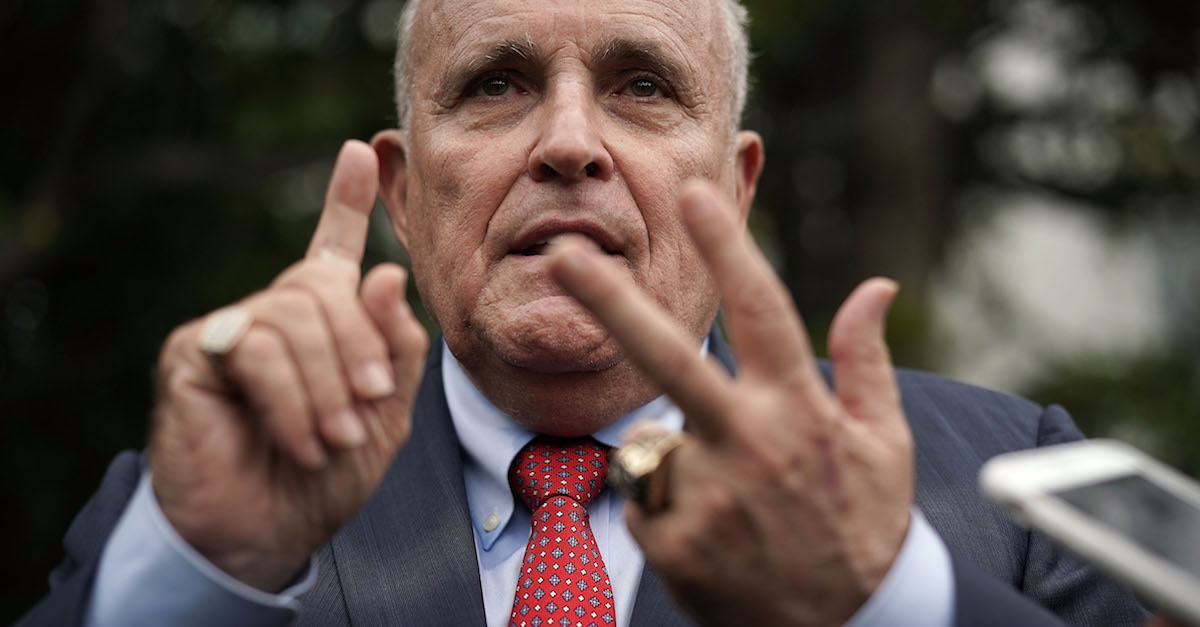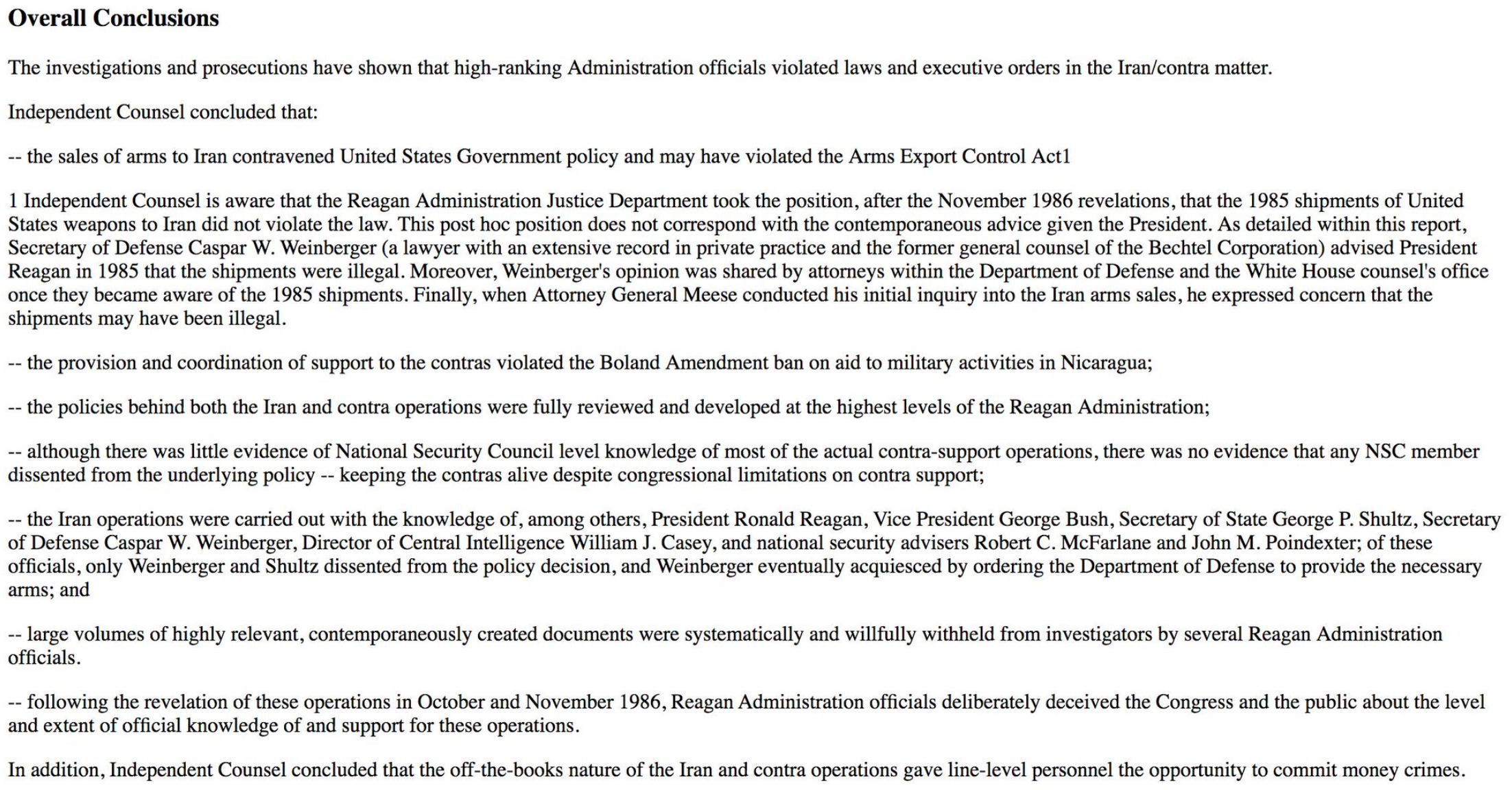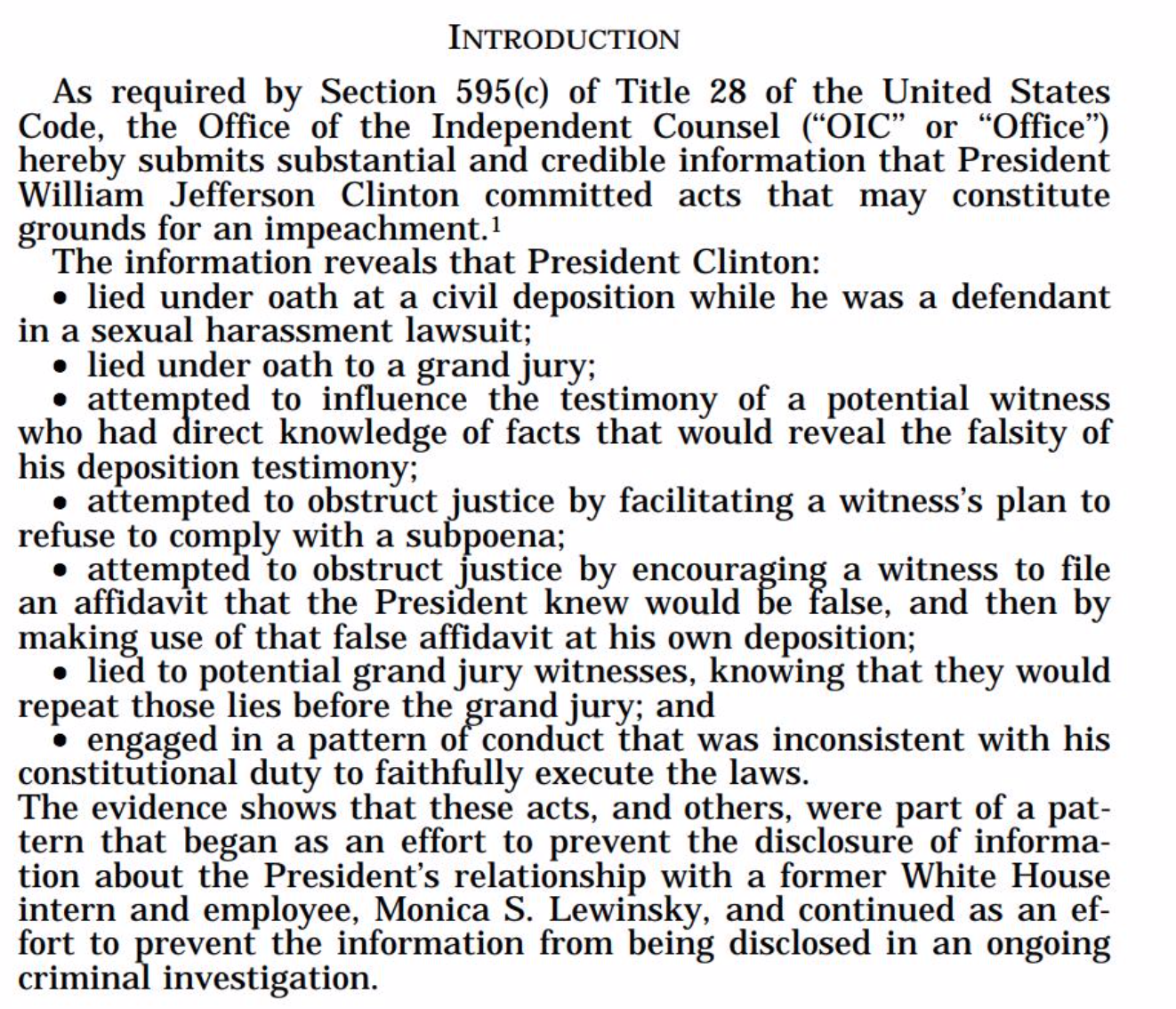
President Donald Trump‘s attorney Rudy Giuliani is suddenly hailing Deputy Attorney General Rod Rosenstein‘s involvement in answering the obstruction of justice question as proof that there really was no obstruction, despite ceaseless attacks on Rosenstein for being responsible for spawning the “witch hunt” in the first place.
Enter Giuliani with some remarks in The Atlantic, citing Rosenstein, the creator of the so-called “illegitimate” investigation Giuliani has railed against since April 2018, as proof that there’s nothing more to see on obstruction here.
The article began with a brief mention of the times Giuliani’s client called Rosenstein “totally conflicted” and accused him of being involved in the “planning [of] a very illegal act” with fired Deputy FBI Director Andrew McCabe. The latter referred to the wearing a wire/25th Amendment invocation controversy. From here, Giuliani basically said Rosenstein’s assessment of obstruction evidence should be enough to shut the “doubters” up.
“For the doubters, the fact that Rosenstein agrees with it [the conclusion that Trump did not obstruct justice] makes it that much more acceptable to people who want to criticize,” he said.
This is not only disingenuous, given Giuliani’s past statements, it’s also illogical, given Giuliani’s past statements. University of Iowa Law Prof. Andy Grewal put it succinctly: “The special counsel investigation that would not have existed but for Rod Rosenstein is illegitimate because of Rod Rosenstein. #logic”
As everyone surely knows by now, Deputy AG Rosenstein appointed Special Counsel Robert Mueller to investigate any links between Russia and the Trump campaign, plus any crimes that arose over the course of said investigation. As everyone also surely knows, Rosenstein did this after President Donald Trump decided to fire then-FBI Director James Comey and tell NBC News’ Lester Holt that “this Russia thing” had to do with it.
While Attorney General William Barr has already said that Mueller did not allege conspiracy between Russia and President Trump/the Trump campaign, the obstruction question remains a source of intrigue, especially as members of Mueller’s team push back for the first time on Barr’s letter outlining the “principal conclusions” of the probe. They claimed through associates that Barr “failed to adequately portray the findings of their inquiry and that they were more troubling for President Trump than Mr. Barr indicated.”
The Washington Post later reported something similar, namely that the findings were more “acute” than Barr suggested in his four-page letter.
Barr said that Mueller didn’t exonerate Trump of obstruction of justice but that Mueller didn’t allege it either, ultimately leaving it up to him and Rosenstein. What did Barr and Rosenstein say? “[E]vidence developed during the Special Counsel’s investigation is not sufficient to establish that the President committed an obstruction-of-justice offense.”
But that doesn’t mean that we won’t see details in the report of wrongdoing on the part of the president. It also doesn’t mean that there won’t be details the House might see as impeachable. As Law&Crime has noted before, reports for past independent counsel investigations like Iran-Contra and the Ken Starr investigation into Bill Clinton included a 1-page introduction that went into great detail about the findings of the prosecutors. Below are samplings of these intros, respectively. As you will see, they aren’t exactly praiseworthy, and it’s possible that we could see something similar in the coming weeks.


In lieu of being able to see everything that the Special Counsel has to say on the subject, however, Giuliani has taken full advantage of the reprieve to form a narrative of his own. I hadn’t anticipated this narrative to include “there’s nothing more to see here because Rosenstein said so,” but I guess I shouldn’t be surprised. “Rudy is Rudy,” after all.
[Image via Alex Wong/Getty Images]
This is an opinion piece. The views expressed in this article are those of just the author.